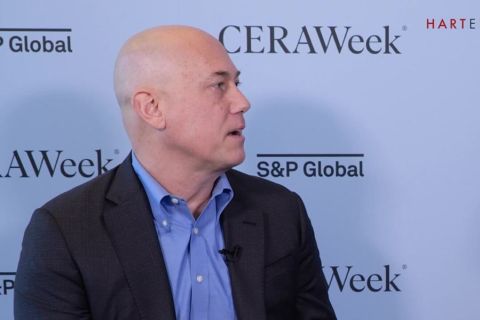Three years ago, the industry and analysts gasped at the $2.8 billion Denver-based Barrett Resources Corp. drew from The Williams Cos. for its 2.1 trillion cubic feet equivalent (Tcfe) of proved U.S. reserves. The implied deal value was $1.33 per proved thousand cubic feet equivalent (Mcfe). The reserves were mostly natural gas and in the Rockies, the Gulf of Mexico and the Midcontinent. Williams had outbid Shell Oil Co., which first made an unsolicited offer of $55 per share, cash, and then $60 when chairman Bill Barrett and other major Barrett shareholders refused to tender their stock. Williams turned up with the equivalent of $73 per share, half in cash and half in stock, and Shell walked away. (A year later, the Williams stock became nearly worthless to those who had held onto it, and the Barrett assets were used as collateral in a debt restructuring.) Shell's initial $2.1-billion offer had an implied transaction value of $1 per proved Mcfe, and its spiced-up $2.3-billion carried an implied value of $1.10 per proved Mcfe. Shell wouldn't go higher. At the time, $1.33 per proved Mcfe was a high price for proved U.S. gas reserves, and even a few months ago, it would have been considered fair in averages. But at press time, it was looking wildly low, as firm offers were made to buy two other Denver-based companies-one for an implied $1.91 per proved Mcfe and the other for an implied $2.25. (And neither deal involved noted price-payer Chesapeake Energy Corp.) In one deal, Oklahoma City-based Kerr-McGee Corp. is offering $3.4 billion in stock and debt assumption for Westport Resources Corp.'s 1.78 Tcfe of proved, mostly gas U.S. reserves. Kerr-McGee clarifies that some $930 million of the $3.4 billion is being paid for about 1.8 Tcfe of probable and possible reserves. So, it is actually paying $1.39 per proved Mcfe and $0.52 per probable and possible Mcfe. Westport's focus area is much like Barrett's was-the Rockies, Midcontinent and Gulf of Mexico-but also includes the Permian Basin and Gulf Coast. (For more on this deal, see "Company Briefs" in this issue.) In the other deal, announced at press time, Calgary-based EnCana Corp. is offering $2.7 billion in cash for Tom Brown Inc. and its 1.2 Tcfe of proved, mostly gas, U.S. reserves for an implied value of $2.25 per proved Mcfe. Some $358 million of the deal value is assigned to Tom Brown's undeveloped exploration land, midstream assets and Sauer Drilling Co. Excluding that, the deal value is $1.95 per proved Mcfe, according to EnCana. Tom Brown's focus is the Rockies, East Texas, Permian Basin and western Canada. Will these prices soon also seem wildly low, as the Williams-Barrett deal does today, or are they just wild? Market dynamics have changed considerably during the past few years, as gas shows sustained price power and U.S. assets rapidly mature. Both company's purchases are not as much for the proved reserves as for the prospects. Tom Brown's prospect inventory includes an estimated 3,200 drilling locations, while Westport Resources has shown tremendous coalbed-methane opportunities in the Rockies. "In an increasingly prospect-constrained domestic E&P environment, the gap between the 'haves' and 'have-nots' continues to widen according to their ability to generate free cash, and the drilling opportunities available for deployment of that cash," says Shannon Nome, an E&P analyst with JPMorgan. Her recent analysis of several producers' free cash flow pointed to this issue, leading her "to a bigger, more important industry conclusion: demand for scarce drilling inventory could lead to accelerated industry consolidation as the have-nots are forced to buy inventory, even at 'inflated' cash flow multiples." More market value will be placed on stocks of companies that have large drilling inventories (the potential acquirees) and less value on those that do not (the potential acquirors). Helping support higher prices for proved U.S. gas reserves is increased finding and development (F&D) costs. New Orleans-based investment-banking firm Howard Weil, in its most recent F&D study, found that 46 public companies' average F&D during the past five years through 2003 has grown to $7.38 per BOE or $1.23 per Mcfe. The low was $0.25 per Mcfe-by Ultra Petroleum, a Rockies-area gas producer-and the high was $2.58-by Spinnaker Exploration, a deepwater Gulf of Mexico wildcatter. (For more on the Howard Weil study results, see "Trends & Analysis" in this issue.) Nome's analysis of F&D has similar results-a $1.50 per Mcfe average in 2003 in her study group, versus $1.31 in 2002. She also pointed to Ultra's low F&D. With Rockies-area producers being grabbed up, is Ultra next? -Nissa Darbonne, Managing Editor
Recommended Reading
Defeating the ‘Four Horsemen’ of Flow Assurance
2024-04-18 - Service companies combine processes and techniques to mitigate the impact of paraffin, asphaltenes, hydrates and scale on production—and keep the cash flowing.
Tech Trends: AI Increasing Data Center Demand for Energy
2024-04-16 - In this month’s Tech Trends, new technologies equipped with artificial intelligence take the forefront, as they assist with safety and seismic fault detection. Also, independent contractor Stena Drilling begins upgrades for their Evolution drillship.
AVEVA: Immersive Tech, Augmented Reality and What’s New in the Cloud
2024-04-15 - Rob McGreevy, AVEVA’s chief product officer, talks about technology advancements that give employees on the job training without any of the risks.
Lift-off: How AI is Boosting Field and Employee Productivity
2024-04-12 - From data extraction to well optimization, the oil and gas industry embraces AI.
AI Poised to Break Out of its Oilfield Niche
2024-04-11 - At the AI in Oil & Gas Conference in Houston, experts talked up the benefits artificial intelligence can provide to the downstream, midstream and upstream sectors, while assuring the audience humans will still run the show.





